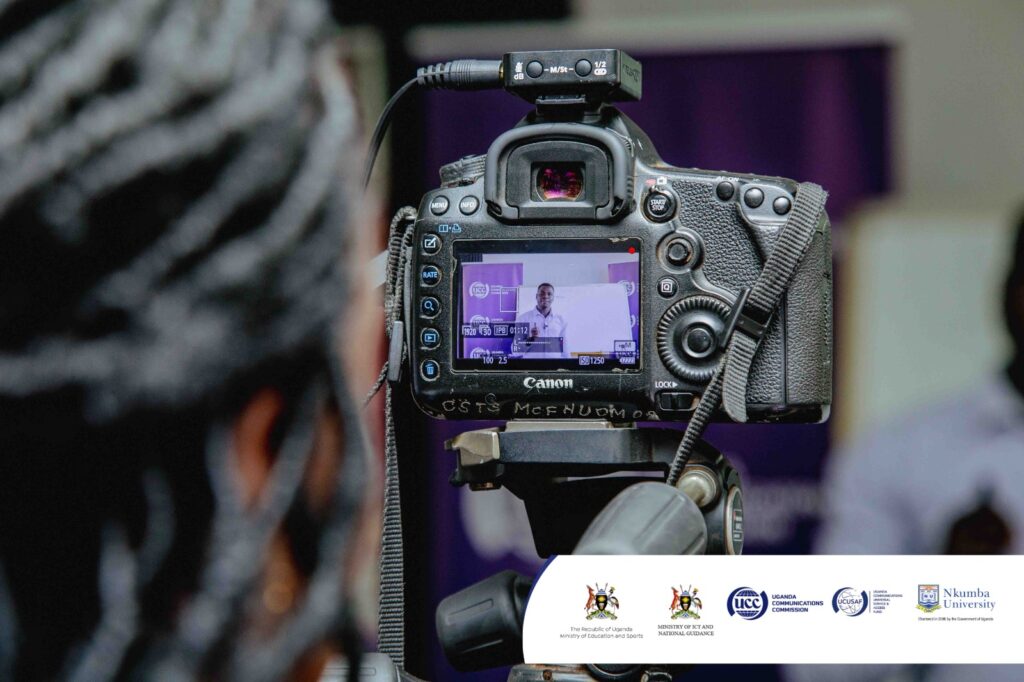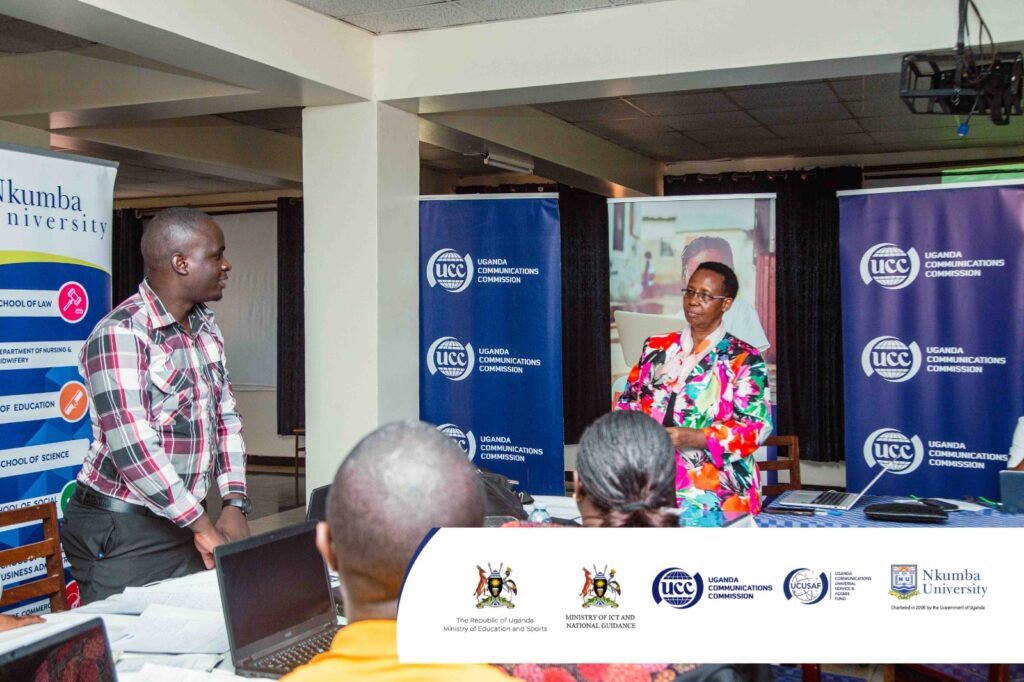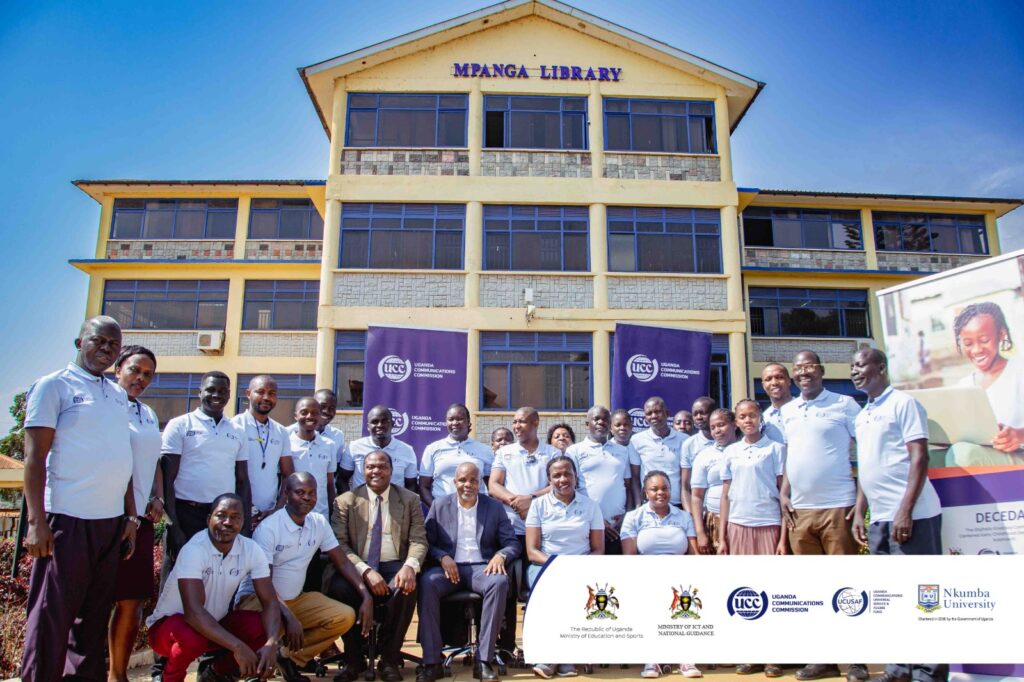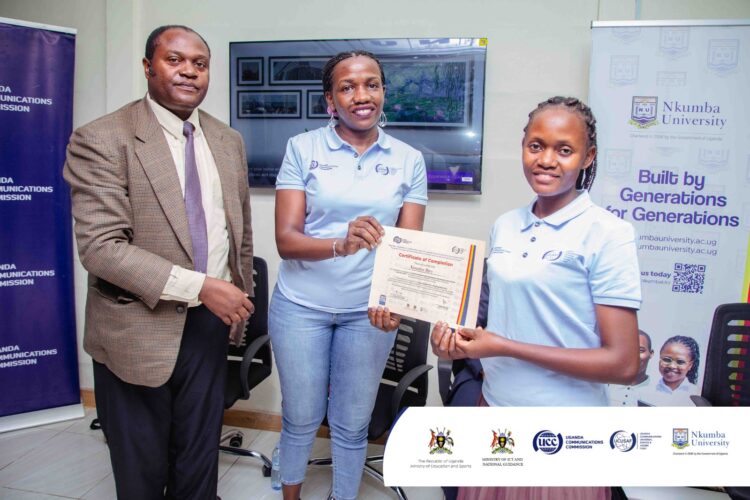The Digitally Enabled Community-Centered Early-Childhood Development Approach (DECEDA) Project has concluded a week-long workshop at Nkumba University aimed at training primary school teachers and Coordinating Centre Tutors (CCTs) to map, develop and create primary school curriculum alligned digital lessons.
The content development workshop, which ran from Monday, September 1 to Friday, September 5, 2025, marked a major step in the implementation of Phase II of the DECEDA Project. The initiative focused on producing curriculum-aligned, digitized lessons in Mathematics, Science, and English for Primary Five and Six (Term Three).
According to the Project Lead, Prof. Jude Lubega, who also serves as Vice Chancellor of Nkumba University, this phase of the project emphasizes both technical and pedagogical growth for teachers. “Phase II focuses on content mapping, development, structuring, recording, and digitalization. The goal is to equip teachers with 21st-century skills in digital pedagogy while ensuring pupils across Uganda access quality, curriculum-aligned content,” Prof. Lubega said.
The workshop brought together CCTs and teachers from 31 selected schools across the country, working in teams to design, record, and digitize lessons. These resources will later be delivered through live sessions and eLearning platforms supported by the Uganda Communications Commission (UCC).
Over the five days, activities were systematically structured to build teachers’ digital capacity. The first two days were dedicated to content mapping and drafting. Day Three focused on studio preparation and trial recordings, while Day Four introduced actual lesson recording and digitization. On Day Five, the content went through peer review and validation sessions with officials from the Ministry of Education and Sports (MoES), the National Curriculum Development Centre (NCDC), and the UCC.
“Everything we do here should be aligned to the primary school curriculum,” reminded Mr. Moses Ruhama of the National Curriculum Development Centre (NCDC) as he addressed the participants.
In addition to lesson recording, teachers received guided training in digital pedagogy. They explored the Learning Object Concept, e-content development processes, rendering and structuring of lessons, as well as tools like tables of contents, storyboards, and sitemaps.
While addressing participants on Day Three of the training, Dr. Annet Mugisha Kajura, Commissioner at the Ministry of Education and Sports, stressed the importance of going digital at the primary school level, “We must embrace eLearning as a complement to classroom teaching. This is the future of education,” she said.
The workshop offered many teachers their first opportunity to translate classroom lessons into a digital format. Mr. Simon Vuooye, an English teacher from West Nile, expressed his gratitude: “I have been teaching for years, but this is my first time recording lessons for digital use. It challenges me to think differently about how I present concepts to learners who may not be physically in front of me. For this, I thank UCC and Nkumba University.”
Another participant, a Coordinating Centre Tutor, emphasized the lasting impact of the training. “When we return to our schools, we shall not only carry back recorded lessons, but also skills in lesson design and ICT integration. This is knowledge that multiplies,” he noted.
At the closing ceremony, presided over by Madam Carolyn Vuni, Manager Technical Monitoring at UCC, participants were awarded certificates of participation. She highlighted the broader significance of the DECEDA initiative. “Digital education is no longer optional. It is the bridge between teachers and learners, ensuring that no child is left behind,” Vuni said.
By the end of the week, the workshop had delivered on its objectives: completed lesson texts for P.5 and P.6 (Third Term), high-quality localized digital content, enhanced teacher capacity in digital pedagogy, and stronger collaboration between Nkumba University, schools, and national stakeholders.
The DECEDA Project, powered by the Uganda Communications Commission through the Uganda Communications Universal Service and Access Fund (UCUSAF), continues to drive Uganda’s transition towards digital learning, building virtual classrooms where teachers become content creators and learners access resources anytime, anywhere.
Photo Gallary

























Discussion about this post